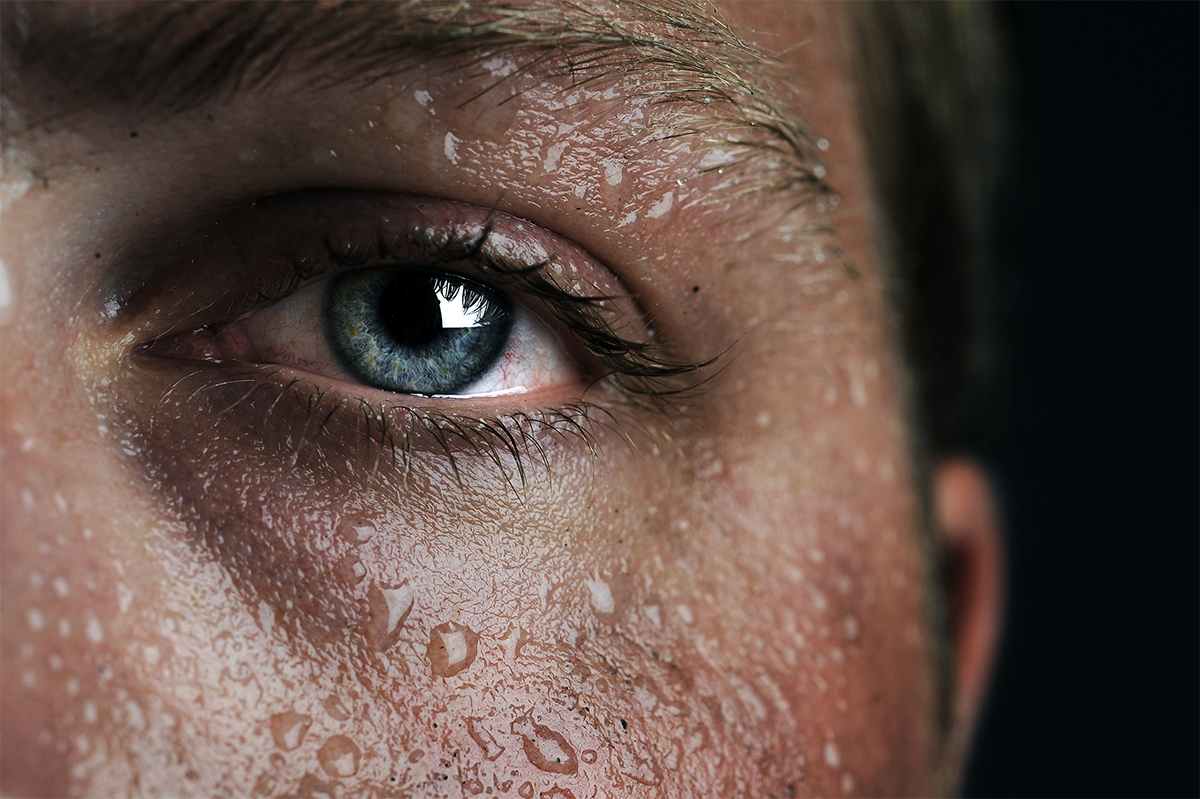
With the warmest and brightest days of summer upon us, we find ourselves spending more time in the sun. A lot of people are enjoying the outdoors for summer-related activities including exercising, swimming, biking or even playing Pokémon Go!
No matter the activity, as the summer days are longer, it is hotter than any other time of the year. The heat can make an otherwise pleasant, outdoor activity uncomfortable. While being hot is normal, there are important signs and symptoms that could be something more. For a few people, that something more is a heat-related injury or illness.
Signs and Symptoms
 Heat-related injuries and illnesses take place when the body absorbs more heat than it releases. In most cases, this is the result of extremely hot weather and the body failing to properly cool itself down. Extreme heat is defined by a heat index of 90 degrees or above. The heat index tells us what it actually feels like outdoors despite what the temperature reads. “In Oklahoma our heat index reaches dangerous levels very frequently during the summer,” says Dr. Emily Grewe-Nelson, Utica Park Clinic Family Medicine physician.
Heat-related injuries and illnesses take place when the body absorbs more heat than it releases. In most cases, this is the result of extremely hot weather and the body failing to properly cool itself down. Extreme heat is defined by a heat index of 90 degrees or above. The heat index tells us what it actually feels like outdoors despite what the temperature reads. “In Oklahoma our heat index reaches dangerous levels very frequently during the summer,” says Dr. Emily Grewe-Nelson, Utica Park Clinic Family Medicine physician.
Of the heat-related illnesses people experience during extreme hot weather, heat exhaustion and heatstroke are the most common. People are often confused and misinformed about the two illnesses. “Heat-related illness can occur much more easily than people realize,” says Dr. Grewe-Nelson.
Knowing the signs and symptoms of the two heat-related illnesses is important when diagnosing and finding the right treatment.
Heat Exhaustion
The result of the body losing necessary fluids through excessive sweating, heat exhaustion happens when you are exposed to too much heat over a short period of time. Common signs of heat exhaustion are:
- Muscle cramps
- Dizziness
- Fatigue
- Nausea
- Vomiting
- Headache
According to Dr. Grewe-Nelson, heat shouldn’t make you experience any of these symptoms. When treating heat exhaustion, actions should be taken to cool the body down. Getting out of the heat, resting and drinking cold fluids are simple ways to treat heat exhaustion. Untreated heat exhaustion has the ability to worsen and potentially lead to experiencing a heatstroke. “People will often write off mild symptoms when they start. these are things that should signal you to stop and find a way to cool off,” says Dr. Grewe-Nelson.
Heatstroke
Of these two heat illnesses, heatstroke is the most severe and is a result of the body's failure to regulate its temperature due heavy heat exposure. This causes the body’s temperature to quickly rise reaching dangerous temperatures. “Heatstroke is an emergency, and these symptoms require immediate medical attention,” says Dr. Grewe-Nelson.
The symptoms of heatstroke are:
- Body temperature of 104°F and above
- Dry skin
- Fast and strong pulse
- Severe headache
- Nausea/dizziness
- Confusion/unconsciousness
The outcome of a heatstroke is life-threatening in 30-80 percent of cases. Those experiencing signs of a heatstroke require immediate medical attention and should call 911. While waiting for medical assistance, attempt to quickly cool down the body using the best methods available, such as moving into a shaded area, getting a breeze from cool air or wiping down with a cold towel.
Prepare for the Heat
As you continue to turn up the heat before summer ends through various outdoor activities, listen to your body and properly prepare for hot weather. “Cold water, covering your skin with light clothing, shade, portable fans and cooling towels can help keep you cool if you plan to be outside during the summer,” says Dr. Grewe-Nelson.
Hydration should be used to keep the body cool. “Make sure to stay hydrated. If you plan on being outside for a prolonged period of time in the summer, have several ways that you can cool off when needed,” says Dr. Grewe-Nelson.
If you or someone is experiencing minor heat injuries or heat exhaustion, visit an Access Medical Centers Urgent Care. For those experiencing signs of heatstroke, call 911 immediately.
